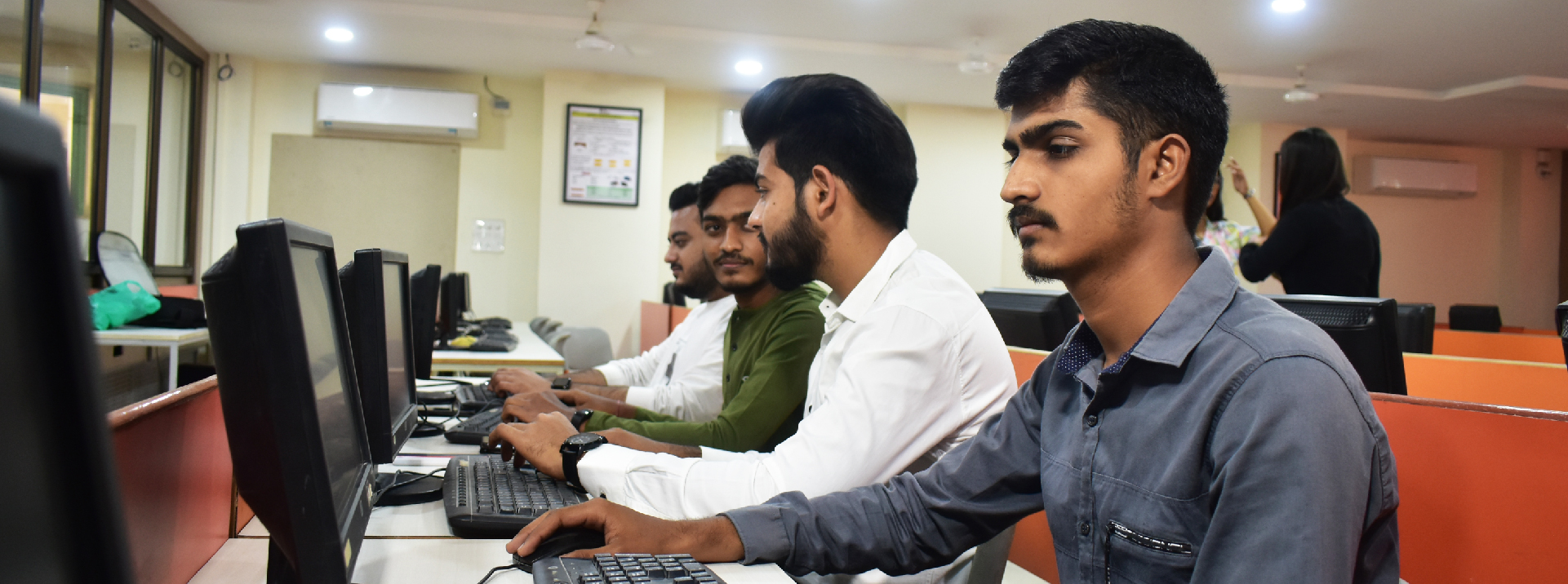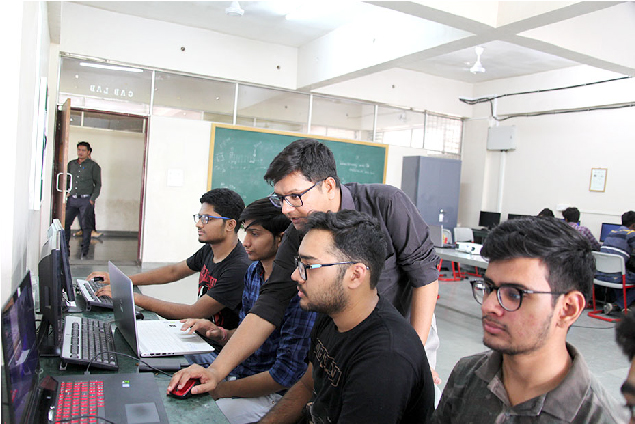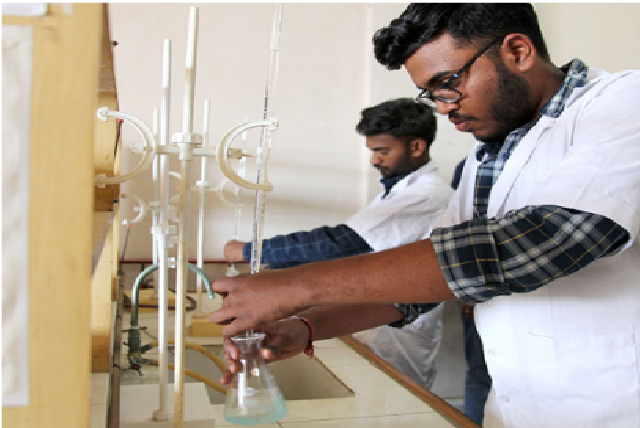Announcement
Get Ready for INDUS CUP 2K26! | Dates: 5–10 January 2026 | Stand a Chance to Win Cash Prizes up to ₹10,00,000!...Read more Get Ready for INDUS CUP 2K26! | Dates: 5–10 January 2026 | Stand a Chance to Win Cash Prizes up to ₹10,00,000!
We are excited to announce the Indus Hackathon 2025, an exhilarating one-day event organized by the CSE Department of Indus University....Read more We are excited to announce the Indus Hackathon 2025, an exhilarating one-day event organized by the CSE Department of Indus University.
26th ISTE Faculty Annual State Convention will be held at Indus University on April 27, 2023....Read more 26th ISTE Faculty Annual State Convention will be held at Indus University on April 27, 2023.
Get Ready for INDUS CUP 2K26! | Dates: 5–10 January 2026 | Stand a Chance to Win Cash Prizes up to ₹10,00,000!...Read more Get Ready for INDUS CUP 2K26! | Dates: 5–10 January 2026 | Stand a Chance to Win Cash Prizes up to ₹10,00,000!
We are excited to announce the Indus Hackathon 2025, an exhilarating one-day event organized by the CSE Department of Indus University....Read more We are excited to announce the Indus Hackathon 2025, an exhilarating one-day event organized by the CSE Department of Indus University.
26th ISTE Faculty Annual State Convention will be held at Indus University on April 27, 2023....Read more 26th ISTE Faculty Annual State Convention will be held at Indus University on April 27, 2023.

Information Technology is a type of technology that offers solutions to organizational and commercial issues. To handle and utilize information/data, this technical field uses computers, networks, storage, and other technological infrastructure.
Information Technology has evolved into the most basic requirement for the smooth functioning of human society. Information Technology has ingrained itself into every aspect of our life, from managing banking to receiving meals from a restaurant delivered to our homes.
Network administration, computer support, and programming are the three main areas of speciality in Information Technology that the B.E. commonly covered in Information Technology degree courses. B.E. The Information Technology course aims to turn engineering hopefuls into knowledgeable professionals who can satisfy the sector's expectations both technically and academically.
Indus University is one of the best Information Technology Engineering Colleges in Gujarat. Department of Information Technology Engineering, which started in 2006, offers a bachelor's degree in information technology (B.Tech). As the top Computer engineering college in Ahmedabad, Gujarat, the department has highly skilled and experienced faculty members specializing in advanced fields.
IITE provides a B.Tech program in Information Technology through its department of Information Technology Engineering. The department emphasizes the complete development of the students in addition to the academic components. It holds a variety of extracurricular activities, such as informative seminars, industrial visits to businesses, expert speeches on cutting-edge technologies, and technical events like coding competitions and hackathons. It also organizes fruitful debates and group discussions regularly.
Core Features of Indus Institute of technology and engineering B.Tech Information technology
Modern Curriculum
Professional Improvement
Industry Immersion
Projects
Industry Visits
Minor Interdisciplinary
Software Skills
Industrial Input
Holistic development
The Admission Committee for Professional Courses (ACPC) will admit students based on merit on 50% of the sanctioned strength for each course. The student needs to register himself with ACPC after the result.
50% seats of the sanctioned strength of each course are Management Quota, admission of which is handled by the institute as per guidelines of ACPC.
Minimum Aggregate 45% in Physics, Chemistry & Mathematics, Theory exam in H.S.C. of any boards.
Course Duration
4 Years (8 Semesters)
Intake
Information Technology – 60 Students
Engineering proficiency: To tackle complicated engineering problems, utilize your knowledge of mathematics, science, engineering fundamentals, and an engineering speciality.
Analysis: Using the fundamental concepts of mathematics, the natural sciences, and engineering, formulate, identify, assess research writings, and analyze complex engineering challenges to obtain validated conclusions.
Design & development solutions: Consider safety hazards, cultural and environmental considerations, and design solutions for challenging technical problems and system components or methodologies that adequately address the indicated needs.
Sustainability and Environment: Demonstrate an awareness of the impact of professional engineering solutions in societal and environmental contexts and the importance of long-lasting developments.
Individual and teamwork: Effectively perform independently, in varied groups, and in leadership roles in multidisciplinary situations.
Communication: Communicate widely about challenging engineering tasks with the engineering community and the general public, for example, by comprehending and writing robust reports and design documentation to provide persuasive presentations and get precise instructions.
Project management: Apply engineering and management ideas to one's assignment as a team member and leader to work on projects and in multidisciplinary backgrounds, demonstrating detail and comprehension in both areas.
The department has 600+ computers equipped with the latest technologies in contemporary, high-tech labs. We have MOUs with several businesses, which may serve to further the academic and research aim. The computer engineering department aims to create the best computer engineers with the knowledge and abilities to impact society positively.
At IITE, our Information Technology course is here to turn your passion into a rewarding career! Our B.Tech in Information Technology program is a 4-year journey that covers everything from coding and software development to network security and database management. Using the latest technology, you'll learn how to create websites, develop apps, and solve real-world problems. Whether you're a beginner or already have some experience, our friendly faculty and hands-on approach will help you succeed.
The Training & Placement Department (T & P Dept.) at Indus University has a separate team that bridges two essential ends: academia and industry. It demonstrates a link between educational institutions, university departments, and businesses.
The focal point for career counselling for university students pursuing studies in all programmes and streams is the Training & Placement Department (T & P Dept.). It provides students with comprehensive career options by assisting them in choosing and pursuing their ideal vocations.
The Admission Committee for Professional Courses (ACPC) will admit students based on merit on 50% of the sanctioned strength for each course. The student needs to register himself with ACPC after the result.
50% seats of the sanctioned strength of each course are Management Quota, admission of which is handled by the institute as per guidelines of ACPC.
Minimum Aggregate 45% in Physics, Chemistry & Mathematics, Theory exam in H.S.C. of any boards.
Course Duration
4 Years (8 Semesters)
Intake
Information Technology – 60 Students
Engineering proficiency: To tackle complicated engineering problems, utilize your knowledge of mathematics, science, engineering fundamentals, and an engineering speciality.
Analysis: Using the fundamental concepts of mathematics, the natural sciences, and engineering, formulate, identify, assess research writings, and analyze complex engineering challenges to obtain validated conclusions.
Design & development solutions: Consider safety hazards, cultural and environmental considerations, and design solutions for challenging technical problems and system components or methodologies that adequately address the indicated needs.
Sustainability and Environment: Demonstrate an awareness of the impact of professional engineering solutions in societal and environmental contexts and the importance of long-lasting developments.
Individual and teamwork: Effectively perform independently, in varied groups, and in leadership roles in multidisciplinary situations.
Communication: Communicate widely about challenging engineering tasks with the engineering community and the general public, for example, by comprehending and writing robust reports and design documentation to provide persuasive presentations and get precise instructions.
Project management: Apply engineering and management ideas to one's assignment as a team member and leader to work on projects and in multidisciplinary backgrounds, demonstrating detail and comprehension in both areas.
The department has 600+ computers equipped with the latest technologies in contemporary, high-tech labs. We have MOUs with several businesses, which may serve to further the academic and research aim. The computer engineering department aims to create the best computer engineers with the knowledge and abilities to impact society positively.
At IITE, our Information Technology course is here to turn your passion into a rewarding career! Our B.Tech in Information Technology program is a 4-year journey that covers everything from coding and software development to network security and database management. Using the latest technology, you'll learn how to create websites, develop apps, and solve real-world problems. Whether you're a beginner or already have some experience, our friendly faculty and hands-on approach will help you succeed.
The Training & Placement Department (T & P Dept.) at Indus University has a separate team that bridges two essential ends: academia and industry. It demonstrates a link between educational institutions, university departments, and businesses.
The focal point for career counselling for university students pursuing studies in all programmes and streams is the Training & Placement Department (T & P Dept.). It provides students with comprehensive career options by assisting them in choosing and pursuing their ideal vocations.

An imaginative educational plan of this program will empower understudies..

An imaginative educational plan of this program will empower understudies..